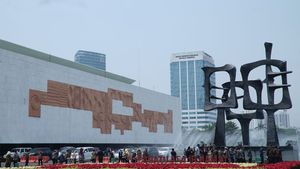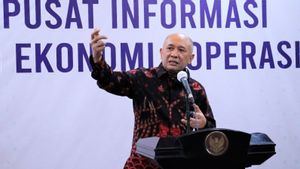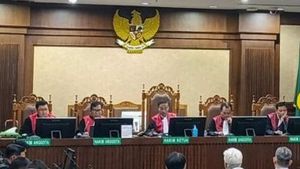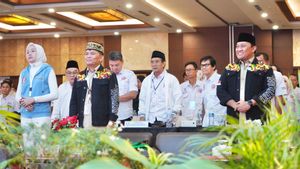JAKARTA - DKI Jakarta Central Statistics Agency (BPS) noted that Jakarta's economic growth reached 10.91 percent year on year (YoY) in the second quarter of 2021. This figure is higher than the national economic growth of 7.07 percent.
Assistant for the Economy and Finance of the DKI Jakarta Regional Secretary, Sri Haryati, said that this achievement was able to save the DKI economy in the midst of the turbulence of the economic recession.
"During the past four quarters, economic growth in DKI Jakarta has been negative. Thank God, for our hard work together, the economic growth in DKI Jakarta in Q2-2021 was positive and grew by double digits YoY, which was 10.91 percent", Sri said in her statement, Friday, August 6.
Sri said, this high economic growth was driven by several events. These include the Eid al-Fitr 1442 Hijri, the provision of holiday allowances (THR) and the 13th salary, as well as the relaxation of motor vehicle taxation (PPnBM) which has been carried out since March 2021.
She continued, the current gross regional domestic product (PDRB) of DKI Jakarta in Q2-2021 was IDR 721.5 trillion.
SEE ALSO:
In Gross regional domestic product (GRDP) according to the business field, the processing industry contributed the highest source of growth at 2.54 percent. Then, the trade sector is 2.01 percent, the accommodation, and food and drink supply industry is 1.59 percent, the transportation and warehousing industry is 1.25 percent, and others at 3.51 percent.
Furthermore, in GRDP by expenditure, household consumption expenditure (PKRT) is the highest contributor to economic growth in DKI Jakarta, with a contribution of 5.14 percent.
Then, government consumption spending contributed 3.01 percent, gross fixed capital formation contributed 2.05 percent, and others by 0.71 percent.
"The PKRT grew quite high in the second quarter of 2021 because it was driven by the phenomenon of the number of electricity customers for households growing positively, the number of recreational visitors increasing, and household internet consumption for education and work increasing. This is in line with the WFH policy and learning from home”, explained Sri.
The English, Chinese, Japanese, Arabic, and French versions are automatically generated by the AI. So there may still be inaccuracies in translating, please always see Indonesian as our main language. (system supported by DigitalSiber.id)


















